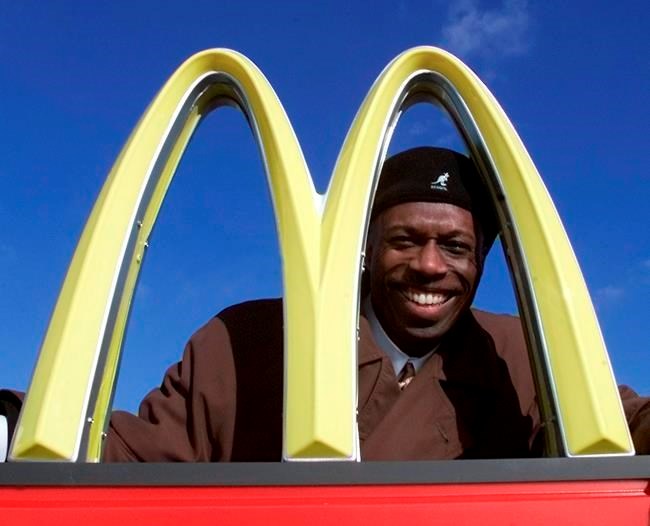CLEVELAND — The Black owner of 14 McDonald's franchises says the company has shown more
The lawsuit filed by Herbert Washington, a former Michigan State University track star who played for parts of two seasons with the Oakland Athletics in the mid-1970s, said the Chicago-based company's discriminatory practices has led to a $700,000 sales gap between Black-owned franchises and those owned by white people.
Franchises in low-income
“By relegating Black owners to the oldest stores in the toughest
More than 50 former Black McDonald’s franchise owners made similar claims to Washington’s in a lawsuit filed against the company in September, saying they were forced to sell around 200 stores in the last decade.
During a video news conference on Tuesday, Washington said he had been fighting a two-tiered system since he bought his first franchise in Rochester, New York, 40 years ago. Washington at one point owned 27 restaurants and said he was forced by McDonald's to sell seven stores over the last several years to white owners.
He now owns 12 restaurants in northeast Ohio and two in Pennsylvania. He blames his advocacy on behalf of Black McDonald's owners for his troubles with the company.
“McDonald's has targeted me for extinction,” Washington said. “The arches are in full-scale retaliation mode against me.”
McDonald's issued a statement on Tuesday denying Washington's assertions. The company said Washington is “facing business challenges" for which the company has “invested significantly in his organization" while offering him ”multiple opportunities over several years to address these issues."
“This situation is the result of years of mismanagement by Mr. Washington, whose organization has failed to meet many of our standards on people, operations, guest satisfaction and reinvestment,” the statement said.
According to the lawsuit, the number of Black McDonald's franchise owners in the U.S. has fallen from 377 in 1998 to 186 today. The company said in response that while the total number of its U.S. restaurants has risen from around 12,500 at the end of 1998 to 14,000 today, the percentage of stores owned by blacks “is broadly unchanged.”
Washington said he always hoped that McDonald's would change its culture and create parity between Black and white franchise owners. He said the company recently offered him $6 a day for each of his franchises to help close the sales gap.
“I can't even buy a Happy Meal with that kind of help,” he said. “They don't want a guy like me around. I'm telling the truth.”
Mark Gillispie, The Associated Press




